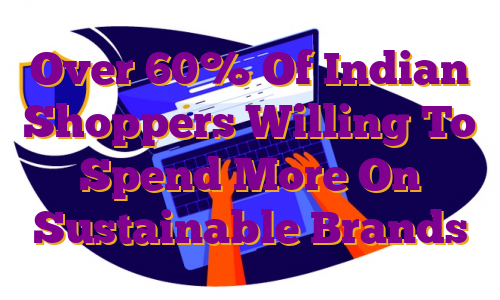NEW DELHI: Indians are finally ready to pay more for planet-friendly consumer brands. A new survey by Bain & Company said 52% of consumers in urban India expect to raise spending on sustainable brands in the next three years. Consulting firm Bain surveyed consumers on their outlook for sustainable brands and their purchase habits. Over 60% of consumers in India are willing to pay a premium for sustainability products, according to findings of the report.
However, Ravi Swarup, partner, Bain & Company, said though Indians have shown the intent, they have not made such purchases yet.
In the survey, 20% of consumers said they were environment and socially conscious while 49% said they were health conscious. Sustainability is equally important across age and income groups in the country, the consulting firm said in its APAC Sustainability Report released Thursday.
Bain & Company surveyed 1,550 consumers in India seeking comments from Gen Z, Millennials, Gen X and Boomers. About 80% of respondents represented the top 60 percentile of income levels, while 46% of respondents ranged between 40–80 percentile. 90% of the respondents were from urban areas. In the APAC region, it surveyed over 16,000 respondents.
“While one may have expected that consumers identifying as either environmentally or socially conscious and health conscious would have predominance in certain subsections of the society, the fact is that it is equally prevalent across income, age and gender,” it said in its India-specific findings.
Personal impact due to environmental issues, and influence of family and friends are the key triggers that are prompting Indian consumers to move towards sustainable products.
Meanwhile, the report pointed to the world’s growing awareness for a range of environmental, social, and corporate governance (ESG) challenges.
“Nowhere is it growing faster or more dramatically than in the Asia-Pacific region,” it said.
Sustainability is also an increasingly important issue for investors, with 78% of global investors saying that they place more emphasis on ESG now than they did five years ago and 65% believing that ESG will become standard practice over the next five years. Singapore requires all listed companies to provide climate reporting, and India has mandated that its top 1,000 listed companies do the same starting in 2023, it said.
For companies it means increasingly there will be more and more pressure to both aspire for and achieve sustainability targets, said Swarup. He pointed to a “latent” consumer demand for sustainability products in India, meaning though they have the intent, the products have not been purchased yet.
“The intent to adopt sustainable products is actually very vehemently stated by consumers across demographics. The important thing to notice in India, especially, as in many other geographies, is that there is an intent and then there is demonstrated behaviour. The intent hasn’t yet translated fully to the demonstrated behaviour,” said Swarup.
Swarup said companies could benefit by tapping into the consumer intent to buy such goods and actually develop products that meet the bar that the consumer has on sustainability.
In India, 43% rank sustainability as a top-five key purchasing criteria, yet sustainable products comprise only 5-6% by value within the consumer goods space. Consumers surveyed in India citied barriers such as ‘lack of knowledge’, ‘high price’, ‘products not being entirely sustainable’ and ‘low availability of brands with sustainable products’ that prevent them from buying into such products.
Meanwhile, over 50% of Indians (similar to other APAC countries) associate sustainability with natural, healthy, organic ingredients. Packaged consumer goods makers have been increasingly adding products that are perceived to be more sustainable within their portfolio. These could be products that comply with better sourcing practices or plastic-free packaging and even those that have low carbon footprint.
Across all markets surveyed, seven elements typically mattered to consumers -healthy ingredients, natural, additive or chemical free, organic, sustainable packaging, sustainability symbols, and local sourcing.
Subscribe to Mint Newsletters * Enter a valid email * Thank you for subscribing to our newsletter.
.


